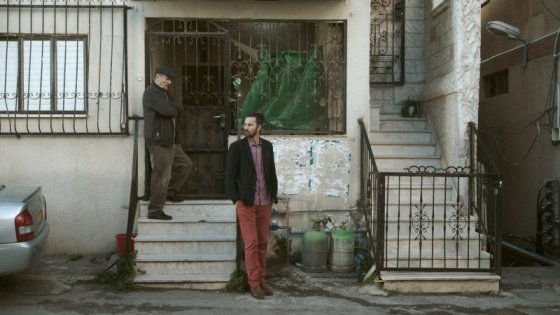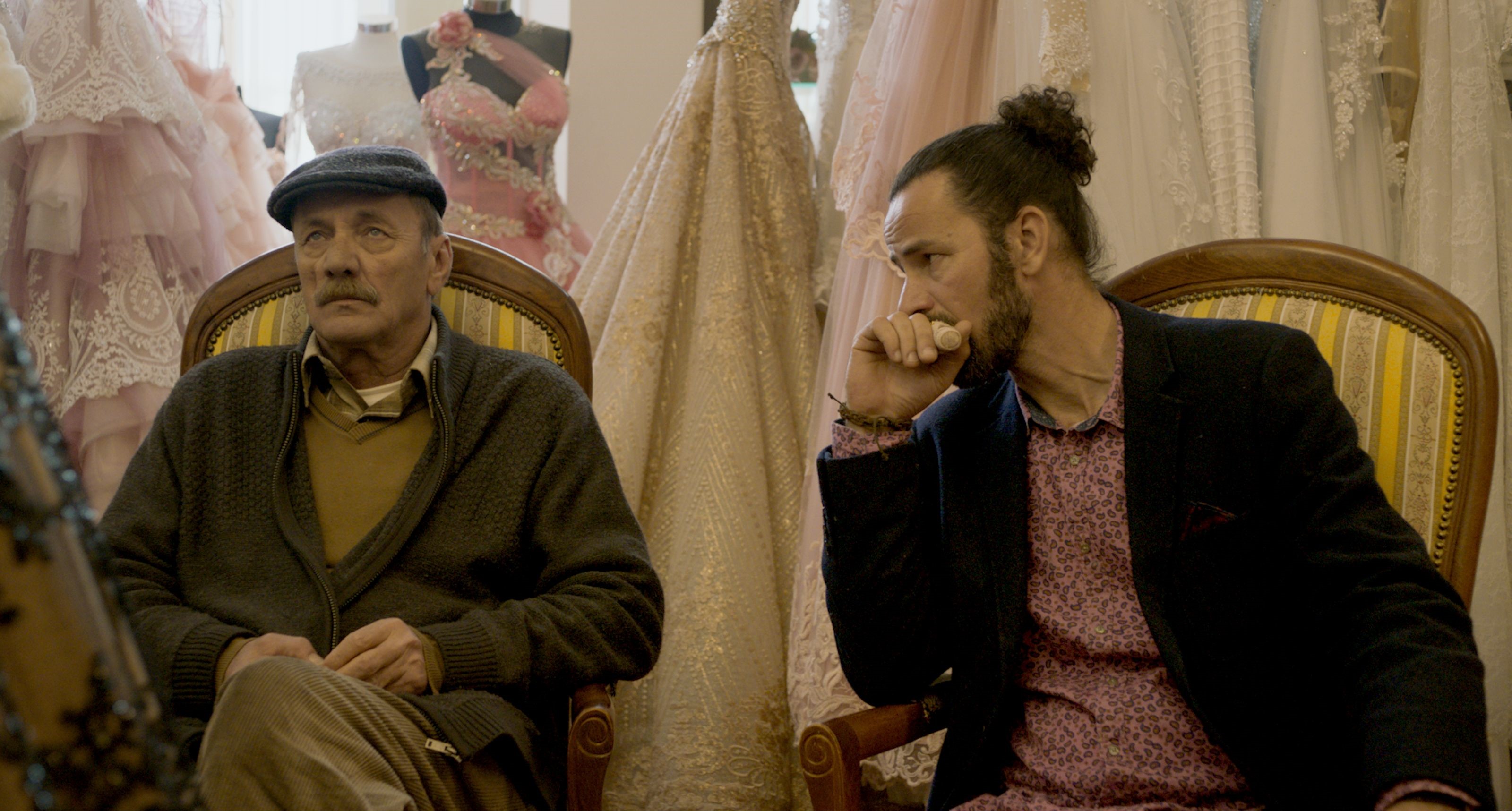Home > Reviews > Features > "Holding onto traditions is part of the resistance, the refusal to be (...)
"Holding onto traditions is part of the resistance, the refusal to be erased." Wajib by Annemarie Jacir
Monday 12 June 2023, by
"Wajib" is a masterfully crafted film that unfolds with subtle brilliance, leaving a profound impact on its audience. Set in the Palestinian city of Nazareth within Israel, the story follows Shadi and his father, Abu Shadi, as they hand-deliver wedding invitations for Shadi’s sister, Amal. Under the skillful direction of Annemarie Jacir, this slow burn masterpiece delves deep into the intricate dynamics of family, culture, and identity.
The performances in "Wajib" are nothing short of exceptional, thanks to the remarkable talents of real-life father-son duo Mohammad Bakri and Saleh Bakri. Their nuanced acting and the way they navigate the city and engage in conversations speak volumes about the struggles and emotions of their characters. The personal and cultural tensions that exist within their relationship, along with the generational divide, are beautifully captured on screen.
"The film invites contemplation of the intricate tapestry woven by family, tradition, and cultural heritage in the face of adversity. "Wajib" is an unforgettable cinematic experience that resonates long after the credits roll."
During a Q&A session after a screening held at The Garden Cinema, Jacir shared a powerful insight into the film, stating, "Holding onto traditions is part of the resistance, the refusal to be erased." This quote encapsulates the underlying theme of the film, highlighting the significance of preserving cultural heritage and identity in the face of adversity. It underscores the transformative power of traditions as a means of resistance and resilience.
"Wajib" skillfully explores the delicate balance between aspiration and disillusionment through its portrayal of Nazareth. The film captures the characters’ yearning for a place and time that may be lost forever, reflecting the bittersweet nature of nostalgia. As Shadi and Abu Shadi traverse the city, engaging in conversations with its residents, the complexities of Palestinian existence are subtly interwoven into their experiences. The film beautifully celebrates Palestinian culture while shedding light on the encompassing nature of the Palestinian experience.
One particular scene stands out among many memorable moments: a heartfelt conversation between Shadi and Abu Shadi in the car, where they discuss Shadi’s formative years. The actors’ impeccable performances, filled with subtlety and emotion, leave a lasting impact, further demonstrating their exceptional talent.
In conclusion, "Wajib" is a remarkable film that gradually unravels its subtlety and depth, captivating viewers along the way. Annemarie Jacir’s masterful storytelling addresses complex themes while maintaining a personal and relatable focus. The film invites contemplation of the intricate tapestry woven by family, tradition, and cultural heritage in the face of adversity. "Wajib" is an unforgettable cinematic experience that resonates long after the credits roll.
Wajib was screened as part of a season of Arab women filmmakers at the Garden Cinema in London.

